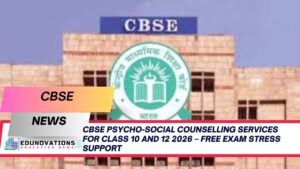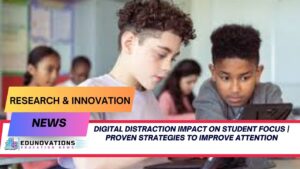Explore the early signs of reading difficulty in kids, understand causes, and learn expert-backed strategies for early intervention and literacy success.
A new wave of educational research is challenging long-held assumptions about childhood literacy. For decades, educators and parents believed reading issues surfaced during early primary school years. But cutting-edge studies now suggest that the early signs of reading difficulty in kids appear much earlier—often as soon as the toddler years.
The findings have significant implications. They call for an urgent reevaluation of how we assess literacy readiness and how early we intervene to support struggling readers.
Reading Challenges Begin Before Kindergarten
Recent studies from top institutions including Harvard’s Graduate School of Education indicate that the foundations of reading are laid down well before children even enter formal schooling. By observing brain activity and early language development patterns, researchers discovered that the brain’s capacity for processing sounds, word patterns, and sentence structures begins forming as early as 12–18 months.
This suggests that many children displaying how reading problems start in preschool could have already been on a trajectory that began much earlier. These early cognitive signals—when missed—can delay much-needed interventions.
The Hidden Struggles: Why Early Detection Matters
Delays in reading are often dismissed as developmental variations. But for some children, these difficulties are persistent, deep-rooted, and diagnosable. Identifying the early signs of reading difficulty in kids can change their academic journey—and even their lifelong success.
Experts warn that untreated reading issues can lead to:
- Poor academic performance
- Lower self-esteem
- Behavioral issues
- Limited career options in adulthood
As per the National Center for Education Statistics, over 34% of Grade 4 students in the U.S. read below the basic level—and most of them were behind even before entering school.
Toppers Use Mind Maps to score more than 95%
NCERT Class 11th Commerce Mind Maps
Add to cartOriginal price was: ₹999.00.₹199.00Current price is: ₹199.00.NCERT Class 12th Chemistry Mind Maps
Add to cartOriginal price was: ₹199.00.₹75.00Current price is: ₹75.00.NCERT Class 12th Commerce Mind Maps
Add to cartOriginal price was: ₹999.00.₹199.00Current price is: ₹199.00.NCERT Class 12th Science Mind Maps
Add to cartOriginal price was: ₹999.00.₹199.00Current price is: ₹199.00.NCERT Mind Maps For Class 10th
Add to cartOriginal price was: ₹999.00.₹199.00Current price is: ₹199.00.
Purchase Today
Key Early Indicators of Reading Challenges
Some of the most frequently observed signs include:
- Delayed speech development
- Limited vocabulary by age 2
- Inability to recognize rhyming patterns
- Difficulty pronouncing simple words
- Trouble following multi-step directions
- Avoidance of reading-related activities
Understanding these red flags is crucial in recognizing early childhood reading struggles tips that truly work.
What Science Tells Us
Brain imaging and neurological studies have revealed that the neural wiring for reading fluency is connected to early auditory processing. According to Dr. Nadine Gaab, an associate professor of education at Harvard, “We can now predict with high accuracy which children are likely to face reading issues—based on their brain patterns at infancy.”
This could revolutionize not only how we teach reading but how we diagnose literacy difficulties using science-backed methods.
From Preschool to Progress: What Parents Can Do
To help parents and educators understand how reading problems start in preschool, here are five practical steps to take:
1. Engage in Daily Reading
Reading aloud helps children associate sounds with symbols. Even 10 minutes daily can boost early literacy.
2. Focus on Sound Awareness
Play phonemic games like clapping for syllables or rhyming words to build awareness.
3. Monitor Language Milestones
Use milestone checklists from reliable educational platforms like Edunovations Syllabus or Videos to track development.
4. Use Visual Aids and Stories
Flashcards, storytelling videos, and NCERT Mind Maps can aid comprehension.
5. Consult a Specialist Early
If your child shows identify reading issues in young children, don’t wait. Early speech therapy and reading interventions can make all the difference.
The Role of Educators and Schools
Teachers play a critical role in spotting reading skills development in toddlers. By integrating phonics-focused tools, regular assessments, and individualized support in pre-K and kindergarten, schools can bridge the gap between observation and action.
Edunovations provides free NCERT Courses and downloadable PDFs for early grade educators to support this learning curve.
Insights from Literacy Experts
Renowned literacy specialist Dr. Timothy Shanahan emphasized:
“We need to stop waiting for failure. Reading readiness is as important as potty training. Waiting till first grade is often too late for many children.”
His sentiment echoes among educators and developmental psychologists who stress reading skills development in toddlers should be as mainstream a conversation as math or physical growth.
Government and Community Support
Countries like Finland, Canada, and Australia have implemented early screening tools into public schooling systems. In India, the NEP 2020 also emphasizes foundational literacy as a national mission.
Local schools and institutions can explore website development for academic resources and reading tools via Mart Ind Infotech, offering web solutions for educational outreach.
Edunovations as a Learning Hub
To support learners and teachers, Edunovations offers:
- Notes on early literacy practices
- Current Affairs including educational policy updates
- MCQs to reinforce learning through assessments
These internal resources help align early education with research-driven insights.
Final Thoughts
The time to take reading seriously isn’t when a child enters school—it’s long before. By identifying the early signs of reading difficulty in kids, parents, educators, and policymakers can work together to ensure that no child is left behind in the literacy journey.
10 FAQs (with Longtail Keywords)
Q1. What are the early signs of reading difficulty in kids?
A1. Signs include delayed speech, poor word recognition, and difficulty with rhyming or following instructions.
Q2. How reading problems start in preschool?
A2. Reading problems can begin with poor phonemic awareness and weak vocabulary development even before formal schooling starts.
Q3. What are effective early childhood reading struggles tips?
A3. Use daily reading routines, sound games, visual storytelling, and consult professionals when needed.
Q4. When should I identify reading issues in young children?
A4. Ideally between ages 2–4, especially if speech or comprehension is below age expectations.
Q5. What supports reading skills development in toddlers?
A5. Reading aloud, interactive books, phonics games, and early education programs significantly help.
Q6. Can preschool programs prevent reading delays?
A6. Yes, structured preschool programs focusing on literacy can reduce long-term reading struggles.
Q7. Is speech delay a sign of reading difficulty later?
A7. Often, yes. Early speech delays may be associated with future reading challenges.
Q8. How can parents help with early reading issues?
A8. By being proactive—engaging in reading, tracking progress, and using expert resources.
Q9. What tools can schools use to detect early reading issues?
A9. Assessment checklists, phonemic awareness tools, and regular screenings are effective.
Q10. Where can I find structured NCERT support for reading?
A10. Platforms like Edunovations offer NCERT-based courses, PDFs, and videos to help.














